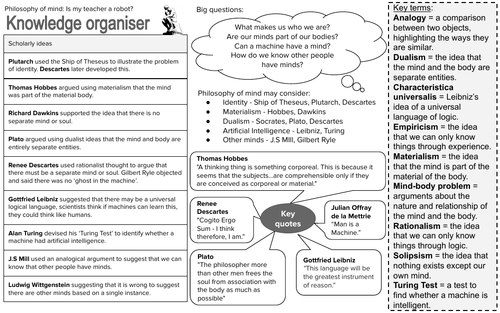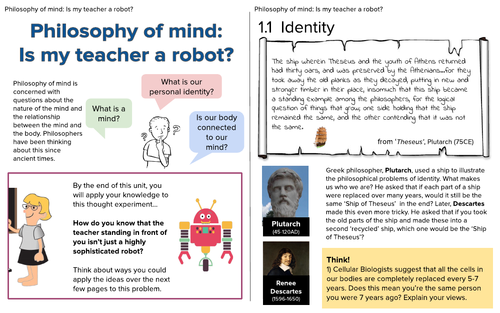I think, therefore I plan
I'm a Head of Philosophy, Religion and Worldviews and have been teaching years 6 -13 for over 10 years. Planning is one of my favourite parts of the job, I love the research and creativity that it involves. My resources are based on years of experience, educational research and subject knowledge. This creates engaging and memorable lessons that are packed with knowledge-rich content. I hope you find them useful, don't forget to rate and comment!







